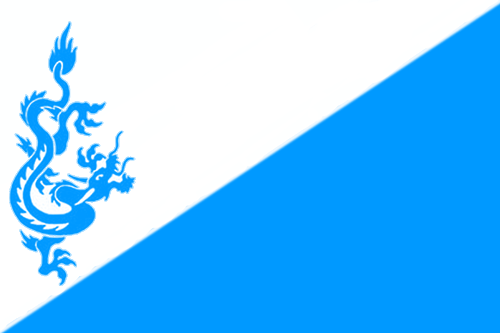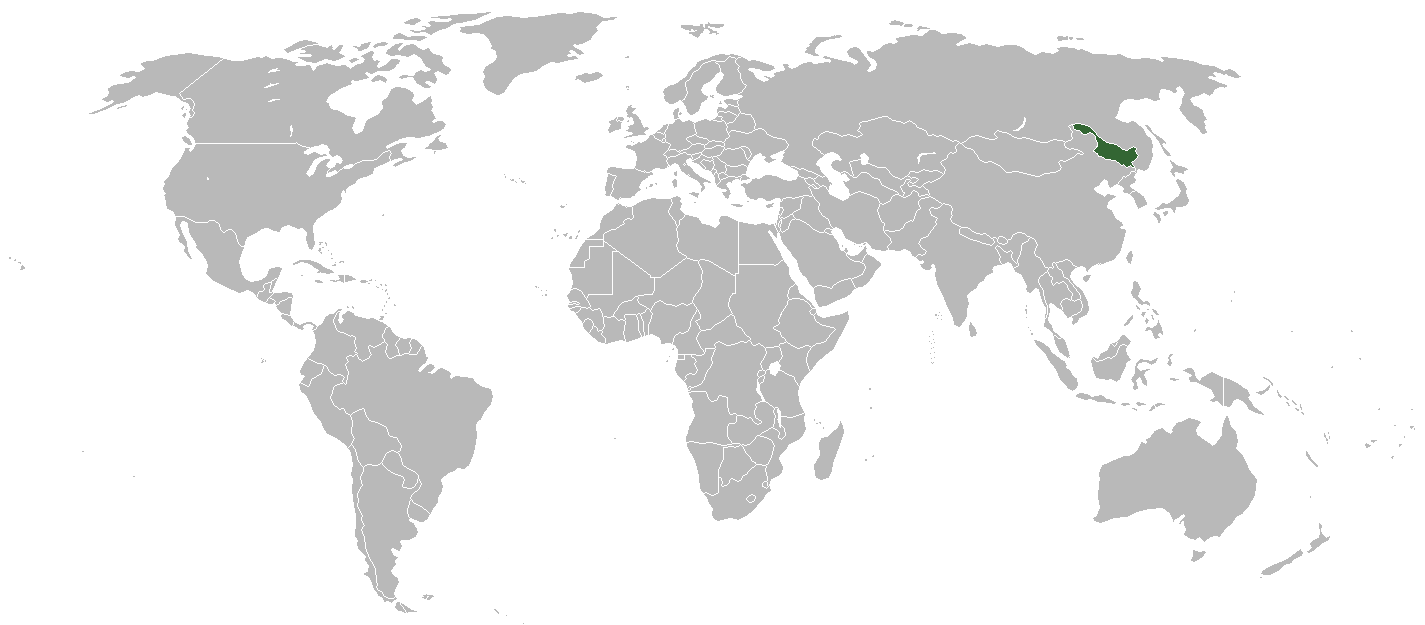Jeuna
This article is incomplete because it is pending further input from participants, or it is a work-in-progress by one author.
Please comment on this article's talk page to share your input, comments and questions.
Note: To contribute to this article, you may need to seek help from the author(s) of this page.
After reading the article, please comment on Jeuna's talk page]] to contribute to the discussion.
|
|||||
| Motto: motto | Anthem: anthem | ||||
| Capital (and largest city) |
Harbin |
||||
| Official languages | Chinese (de facto official) | ||||
| Government | Parliamentary republic | ||||
| - President | Fan Banou | ||||
| - Premier | Jin Jiahua | ||||
| Formation | |||||
| - National Formation Day | 7 September, 1211 | ||||
| - Independence from China |
18 August, 1921 | ||||
| Area | |||||
| - Total | 460,000 km² (00th) | ||||
| 00,000 sq mi | |||||
| - Water (%) | 0.0 | ||||
| Population | |||||
| - 2007 estimate | 38,170,000 (00th) | ||||
| - Density | 83 /km² (00th) | ||||
| 00 /sq mi | |||||
| GDP (PPP) | 2007 estimate | ||||
| - Total | $0.00 trillion (00th) | ||||
| - Per capita | $0,000.00 (00th) | ||||
| HDI (2003) |  0.000 (high) (00th) 0.000 (high) (00th) |
||||
| Currency | Yin (international Ỵ, Jeunese 银, yín) (JNY) |
||||
| Time zone | JST (UTC+9) | ||||
| - Summer (DST) | not observed (UTC+9) | ||||
| Internet TLD | .jn | ||||
| Calling code | +83 | ||||
Jeuna, officially the Republic of Jeuna (known in Chinese as 媛華共和国; Pinyin: Yuánghua Gònghéguó) is a country in East Asia. It is bordered to the north by Russia, to the west by the People's Republic of China, to the south by North Korea and to the east by the Sea of Japan.
Contents
Etymology
Jeuna is usually known as Yuánguó (Chinese: 媛国) in Mandarin Chinese. The first character, 媛, means 'a beauty', while the second character, 国, means 'state' or 'country'. Christian missionaries originally translated the name as 'Beautiful Kingdom'.
The origin of the English construct 'Jeuna' may have come from two sources. The first is that 'Jeuna' was derived from Sanskrit Jun, which referenced the Jin Dynasty that ruled the area. Traders on the Silk Road may have identified themselves as such. The other possibility is that 'Jeuna' is a corruption of the original name, Yuánghua.
History
- Main article(s): History of Jeuna
Ancient
Jeuna's history stretches back as far as the fifth century, when it was first known to be inhabited by such people as the Xianbei, the Mohe, and the Khitan. The eastern portion of Jeuna was ruled by kingdom of Bohai between the 7th century and 10th century. The Wikipedia:Jurchen Jin Dynasty (1115-1234) that subsequently ruled much of northern China arose within the borders of modern Jeuna.
Government and politics
- Main article(s): Government of Jeuna
Foreign relations
- Main article(s): Foreign relations of Jeuna
Jeuna maintains a strong relationship with the United States, and has historically disagreed with both the People's Republic of China and North Korea since their communist revolutions. For a time, Jeuna was an important strategic foothold against the USSR, and several bases were built in the north and eastern areas of the country as a precautionary measure to stave off invasions by the Soviets.
Military
- Main article(s): Military of Jeuna
Jeuna possesses a small military force, which uses equipment primarily from the United States, but has also looked at acquiring certain newer Russian gear since 2005.
Jeuna's military consists of three branches, which are:
- the Republican Guard,
- the Jeunese Navy and
- the Jeunese Air Defence Force
Administrative divisions
- Main article(s): Administrative divisions of Jeuna
Jeuna is divided into 14 provinces, 138 counties and 1,382 townships.
Geography
- Main article(s): Geography of Jeuna
Economy
- Main article(s): Economy of Jeuna
Demographics
Culture
- Main article(s): Jeunese culture


